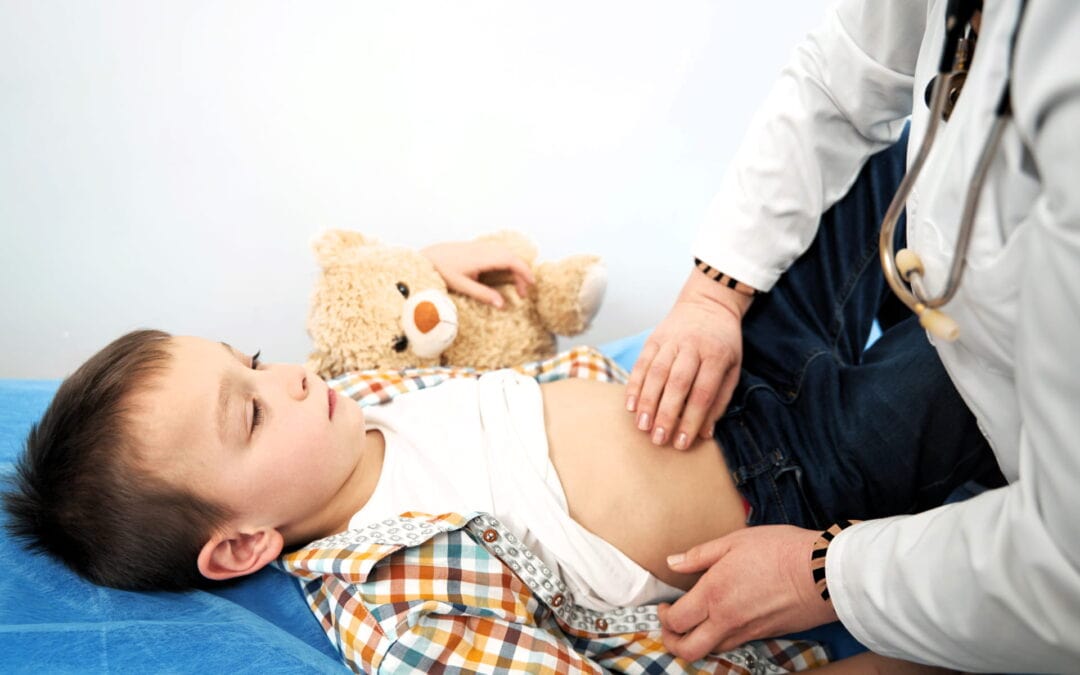Stomach aches in children can turn an ordinary day into a worrisome ordeal. While most tummy troubles are not serious and often pass with simple home remedies, there are times when the pain indicates something more severe. Recognizing the difference between a regular stomach ache and one that requires urgent care is crucial for parents. This guide will help you understand when it’s time to take action and seek medical attention for your child’s discomfort.
Understanding Stomach Aches
Children often complain of stomach aches, which can stem from a variety of causes ranging from overeating to stress. However, distinguishing between mild discomfort that can be treated at home and severe pain needing professional attention is essential. Parents should observe their child’s behavior and look for any accompanying symptoms that might indicate a more serious condition.
- Stomach aches can arise from numerous benign causes.
- Observing your child’s overall behavior is key.
- Some stomach aches require more than just home treatment.
Recognizing Serious Symptoms
Serious symptoms accompanying a stomach ache can include persistent vomiting, dehydration signs, high fever, or blood in stool or vomit. These symptoms can indicate conditions like appendicitis, gastrointestinal infections, or even food poisoning, all of which necessitate a visit to pediatric urgent care.
- Persistent symptoms alongside stomach pain are a red flag.
- Dehydration and fever can complicate the situation.
- Blood in stool or vomit requires immediate medical attention.
Severe Pain Intensity
The intensity of the pain can often signal the seriousness of the condition. If your child is experiencing sharp, localized pain or pain that increases over time, it’s a sign that you might need to seek urgent care. Pain that disrupts sleep or prevents normal activity should not be ignored.
- Sharp, localized pain is concerning.
- Increasing pain intensity is a warning sign.
- Pain that disrupts daily activities needs attention.
Vomiting and Dehydration
Vomiting can lead to dehydration, especially if it’s persistent and not just a one-off incident. Signs of dehydration include dry mouth, lack of tears when crying, and decreased urine output. If your child cannot keep fluids down, it’s time to seek medical help.
- Persistent vomiting can quickly lead to dehydration.
- Look for signs of dehydration.
- Inability to retain fluids warrants a visit to urgent care.
Fever and Stomach Ache
A fever accompanying a stomach ache can indicate an infection. While a low-grade fever might not be alarming, a high fever, especially if it persists for more than 24 hours, requires medical evaluation to rule out serious infections or conditions.
- Fever can signal an underlying infection.
- High fever with stomach pain is particularly concerning.
- Persistent fever needs medical evaluation.
Bowel Movement Changes
Changes in bowel movements, such as the presence of blood, severe diarrhea, or constipation, can indicate a more serious underlying issue. These symptoms, especially when combined with stomach pain, should prompt a visit to pediatric urgent care to ensure they are not signs of a more severe condition.
- Blood in stool is a serious concern.
- Severe diarrhea and constipation should not be ignored.
- These symptoms combined with pain require urgent care.
When Home Remedies Fail
Home remedies like rest, hydration, and a bland diet can often alleviate mild stomach aches. However, if these measures do not provide relief or if the symptoms worsen, it’s a clear indication that professional medical help is needed.
- Home remedies are the first line of treatment for mild stomach aches.
- Lack of improvement with home treatment is a concern.
- Worsening symptoms despite home care require urgent medical attention.
Preparing for Urgent Care
When heading to pediatric urgent care, it’s helpful to bring a list of symptoms, any known allergies, and a history of the child’s health conditions. This information can aid healthcare providers in quickly diagnosing and treating your child’s condition.
- Bring a list of symptoms and any relevant medical history.
- Note any allergies your child has.
- Prepare to describe the onset and progression of symptoms.
In navigating the distressing experience of your child’s severe stomach ache, understanding when to seek urgent care is paramount. Recognizing the signs that differentiate a common stomach ache from one that is potentially more serious can ensure your child receives the necessary care without delay.
Key Takeaways for Parents on Pediatric Urgent Care
Identifying when a child’s stomach ache requires urgent care is crucial for their health and well-being. Severe pain intensity, persistent vomiting leading to dehydration, fever accompanying stomach pain, changes in bowel movements, and the failure of home remedies to provide relief are all signs that urgent care may be needed. Being prepared and knowing when to seek professional help can make a significant difference in your child’s recovery and health.
Frequently Asked Questions
1. How can I tell if my child’s stomach ache is serious? If the stomach ache is accompanied by severe pain, persistent vomiting, fever, changes in bowel movements, or if home remedies fail to provide relief, it may be serious and require urgent care.
2. What are the common causes of stomach aches in children? Common causes include indigestion, constipation, stress, infections, and food intolerances. However, severe conditions like appendicitis also present with stomach pain.
3. Can dehydration be a result of vomiting? Yes, persistent vomiting can lead to dehydration, characterized by symptoms such as dry mouth, lack of tears, and decreased urine output.
4. When should I worry about my child’s fever with a stomach ache? A high fever that persists for more than 24 hours, especially if accompanied by a stomach ache, should be evaluated by a healthcare provider.
5. What should I bring to pediatric urgent care? Bring a list of your child’s symptoms, any known allergies, a brief medical history, and information on any medications your child is taking.

